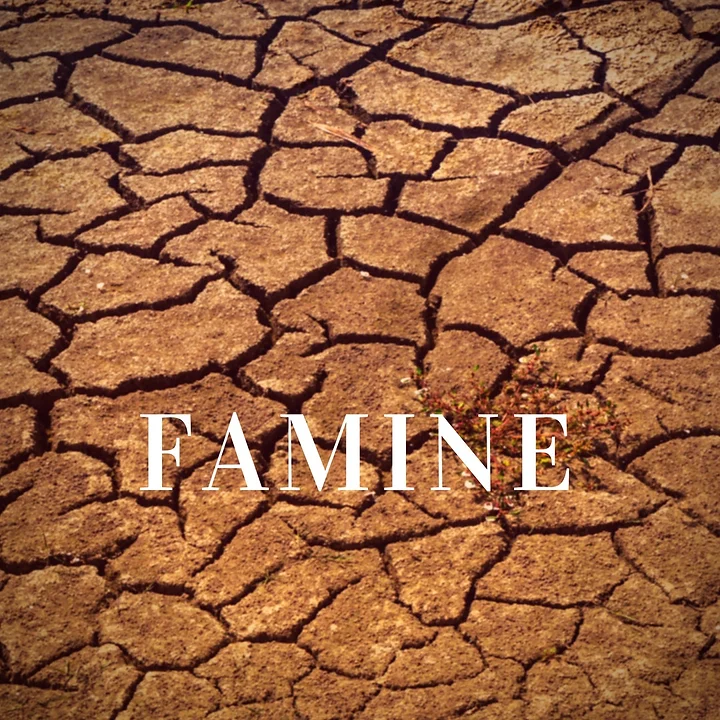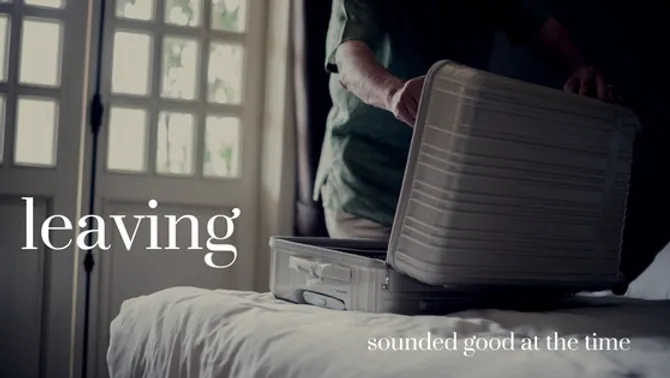Samuel and his father no longer saw eye-to-eye.
So, Samuel thought it best to move on.
The old man had been on his case his whole life.
At least, that’s how Samuel saw it. Thought he knew his dad inside and out. Thought he knew the world much the same way. No one could put anything past him. He was smart, cunning, methodical, creative, and determined—his mother would’ve said stubborn.
Either way, he’d had enough. It was his life. No one else’s. And he wanted to go all Frank Sinatra and do it his own way.
And so, his father let him—some would say encouraged him. Spread your wings. Find the world—find yourself—your way. It was an easy road in his mind. But the road was longer and rougher and more wild—dangerously wilder than he’d ever imagined.
His father gave him more than he needed—certainly more than he deserved—maybe more than anyone deserved. It was like inheriting a fortune except no one had to die, or so it seemed. Some would say his father died a little bit that day as he watched his son leave. Some would say Samuel died. At one time, his father had been his life. Now he was leaving his life behind—burying his old life—his old man.
The money was great. The freedom was great.
He wasn’t the fool everyone thought he was. He was smart with his money—his money. No one else could claim it. No one else could manage it. Sure he spent some, but he invested most of it. He knew what to do with it—how to avoid squandering it. He had everything under control—the bull by the horns.
But the bull turned into a bear. His investments turned upside down, went south, belly up, any way you want to describe it. They dried up. But his bills didn’t. They persisted and mounted and crushed him—squeezing almost every last dime.
No worries. He could do more than invest money. He could invest himself. He was his own man and in control. So, he got a job. Jobs were hard to find, but he had mad skills and determination, and nothing and nobody was going to stop him. His foundation may have crumbled, but he could build a new one, and he would—or so he thought.
But he couldn’t control everything.
The failing economy wasn’t his fault and was beyond his control. But so was the famine. He’d never experienced a famine. He imagined crops drying up and farmers having a difficult time.
But the famine touched everyone. Crops dried up for hundreds of miles. Trees died—snapped in the wind. Rivers and lakes shrank and shriveled as did mothers and children. Grown men became sacks of skin sagging over brittle bones. Wonderland became wasteland.
He’d thought he’d found himself. Wealth had convinced him he’d been in control of his destiny.
But he’d lost himself and became destitute with no control and no sense of destiny other than his destiny to die poor, alone, far from home, and forgotten. Friends had deserted him, but not only him, the famine was so devastating, they had deserted their homes and their towns. Most journeyed to find family or friends beyond the cursed famine. Many died along the way.
As he stumbled along the dust-covered road, he stumbled over the dead, the starving, the forgotten. And he saw himself. “I’ll soon be one of them.” There was nothing for him anymore, and he barely had the strength to walk, but he was determined—stubborn—too stubborn to die.
But not too stubborn to admit he’d been beaten. The famine had beaten him. The life he thought he could control had beaten him.
It struck him strange. He had left his friends, his family, and his home amidst plenty. There’d been no famine—no lack of love or attention—no lack of anything. His father had given him everything, and when he’d had enough and chose to leave, his father gave him what Sam had thought was rightfully his—what he now realized was more than he deserved.
As his stomach growled and the sun baked his skin, he thought of home—his warm bed, family, and a well-stocked and welcoming kitchen.
But home was no longer home, and he couldn’t go back. He could never go back.
He collapsed on the dusty road. Hands in his lap, he stared at the cracked earth and his dry, cracked skin. He realized how pathetic he must look. Blistered lips. Dust-covered. Clothes worn thin—tattered. He knew he no longer looked like the young man who’d left home. Time had added lines and scars. His hair was frayed, wind-blown, and down to his shoulders. No one would recognize him—not even his father. He could go home, keep his head down, change his voice, talk to one of his father’s foremen and maybe get a job.
He had nothing to lose.
His father, on the other hand, felt like he’d lost everything when he lost his son. But he’d always held on to a thread of hope that he would one day return. The famine threatened his hope. He knew what it would mean for his stubborn son. And he feared the worst. He knew it had been a mistake to let that young man assume charge over his own life and such a chunk of wealth, but he loved his son enough to let him make his own mistakes and learn his own lessons—even if it meant learning the hard way—even if it meant losing him.
Trusting his son to his own devices had been threatening enough, but troublesome news of the famine was a daily reminder that his son was gone and would likely never return. The famine continued with no end in sight. No crops. No water. No food. Empty towns. People dying. His son could be one of them.
Everything was worth losing to bring him home.
He stood on his front porch looking past his vast estate. It may as well have been invisible, because he couldn’t see it. He watched the horizon, staring as far as he could, waiting, as if somehow hoping and standing there would make his son appear.
A tiny speck, a silhouette appeared on the horizon. The speck grew, and he noticed a familiar lilt—a step, and his heart found life again. His sluggish pulse surged from its sleep and pounded out of his chest. Heat rushed through his body. His stomach doing flip-flops and somersaults. Sweat beading. Tears streaming. It’s my son.
He wasn’t close enough to make out any features—not even the color of his hair. But he knew it was him. And he leapt from the porch and ran—shouting orders at his employees as he ran. “Grab that side of beef from the cooler and fire up the smoker. Borrow more smokers and grills—buy some if you have to. That’s my son. I thought he was dead, but there he is.
He’s alive, and it’s time to celebrate.
You’ve likely heard the story before—the lost son—the prodigal son. We put ourselves in the place of the son who wants to live his life his way and feels like the father owes him his share of the family’s wealth. Great story.
But I’ve recently noticed some things in the story I hadn’t before. What happened to bring the son to his knees—to the point of starvation and eating rubbish with hogs?
The son could predict a lot things—control a lot of things. But he couldn’t control the stock market. And he couldn’t control the weather. Those of us in the US often miss the part of the story that drives the wayward son to eat with the pigs. We think it’s because he squandered his wealth. True. But he could have begged for food or gotten a decent job, but there was no food, and there were no jobs. Famine drove him to his knees—and drove him home.
Other parts of the world have a keener appreciation for the word famine. In 1921, the Soviet Union experienced a famine brought about by multiple political, socioeconomic, military, and environmental factors. The most commonly quoted estimate is five million deaths attributed to the famine. Five million. That’s something a society remembers for generations.
Famine is not the only new thing I noticed in the story.
I didn’t mention the older brother. He’s the one who stayed home, worked the farm, then resented his long-lost-lavish-everything-on-the-loser brother who seemed like a hero because he came back to beg for a job and instead got a place at the table. The older brother takes a lot of heat for not loving his brother.
But the thing the older brother and the johnny-come-lately brother had in common was that neither of them had loved their father. Neither knew what they had. Both lived like they deserved everything their father could offer. Both lived oblivious to their father’s love. And neither enjoyed him.
Neither recognized that their most precious possession was their father’s unquenchable love.
Does God have to work to love you?
Does He have to think about it?
Does He struggle to look past your faults?
Does He wonder if you’re worth it?
Does He pretend? Does He have to choose to love you?
Or does love come naturally for Him?
Love is not work for God.
He doesn’t have to think about it or decide.
There is no struggle to look past your faults—what faults—He doesn’t see your faults. He remembers His sacrifice to love you—pursue you—chase after you with everything He’s got—send His one-and-only, firstborn of all Creation, only-begotten, I-and-the-Father-are-one Son to seek and save you. That kind of love.
Love that’s unstoppable, unquenchable, undeniable, unbelievable-but-you’d-better-believe-it love.
He never wonders if you’re worth it. He doesn’t pretend—doesn’t have to—His love is real, intentional, insatiable.
Love is not His choice. Love is His nature. Love is who He is. Love is God.
Do we need a famine to recognize it?




